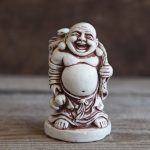In the realm of Feng Shui, the ancient practice of harmonizing energy flows to promote well-being and prosperity, the bedroom holds a special significance. From the arrangement of furniture to the choice of colors, every detail in your sleeping space can impact your overall energy levels and quality of rest. One crucial aspect of Feng Shui bedroom design is determining the ideal sleeping direction for optimal energy flow and rejuvenation.
The importance of sleeping directions in Feng Shui cannot be overstated, as it is believed that aligning yourself with auspicious energy while you sleep can lead to improved health, relationships, and overall life satisfaction. By understanding the principles behind different sleeping directions based on Feng Shui teachings, you can create a conducive environment for restful sleep and positive energy flow in your bedroom.
To determine your ideal sleeping direction according to Feng Shui principles, you may need to consider factors such as your birth element, Kua number, and personal compatibility with each cardinal direction. By finding the most suitable orientation for your bed, you can enhance not only your physical well-being but also support emotional balance and mental clarity.
Stay tuned as we delve deeper into how to align your bedroom layout with your optimal sleeping direction and make practical adjustments for a harmonious sleep environment.
The Importance of Sleeping Directions in Feng Shui Practice
Feng Shui practitioners believe that the direction in which you sleep can have a significant impact on your overall well-being and energy levels. In Feng Shui practice, sleeping directions play a crucial role in determining the flow of qi, or energy, in your bedroom. This ancient Chinese art focuses on creating harmony and balance in living spaces to promote health, wealth, and good fortune.
According to Feng Shui principles, the best sleeping direction for each person is determined by their Kua number, which is calculated based on their date of birth and gender. Your Kua number corresponds to one of the eight cardinal or intercardinal directions: north, south, east, west, northeast, northwest, southeast, or southwest. Each direction is associated with different elements and energies that can influence your quality of sleep and overall health.
To determine your ideal sleeping direction according to Feng Shui, you can use online calculators or consult with a Feng Shui expert. Once you know your optimal sleeping direction based on your Kua number, you can adjust your bed placement accordingly to maximize the flow of positive energy in your bedroom. Making simple changes like repositioning your bed or altering the placement of furniture can make a big difference in how well-rested you feel each morning.
| Feng Shui Direction | Associated Element |
|---|---|
| North | Water |
| South | Fire |
| East | Wood |
Understanding the Different Sleeping Directions Based on Feng Shui Principles
Feng Shui principles emphasize the importance of sleeping in a direction that aligns with one’s personal energy, or Qi. The direction in which you sleep can greatly impact your overall well-being, as it can determine the quality of your sleep, energy levels, and even emotional state. According to Feng Shui beliefs, each person has a unique sleeping direction that is most beneficial for them based on their individual energy makeup.
In Feng Shui practice, there are four main sleeping directions: north, south, east, and west. Each direction is associated with different elements and energies that can either support or disrupt your sleep patterns. For example, sleeping with your head pointing towards the south is believed to promote relaxation and restful sleep, while sleeping with your head pointing towards the north may lead to restless nights and poor quality sleep.
To determine your ideal sleeping direction according to Feng Shui principles, you can use a simple compass to find out which direction your bed is currently facing. Once you have identified the direction of your bed, you can then assess whether it aligns with your personal energy based on Feng Shui guidelines.
If your current sleeping direction does not support restful sleep and well-being, there are various tips and adjustments you can make to improve the flow of Qi in your bedroom.
- Place the head of your bed in an auspicious alignment based on your personal Kua number.
- Avoid placing mirrors or sharp objects facing directly towards the bed.
- Create a sense of balance and harmony in your bedroom layout by decluttering and organizing the space.
Adhering to these Feng Shui recommendations can help create a more harmonious environment for rest and rejuvenation in your bedroom. By aligning yourself with the right sleeping direction based on Feng Shui principles, you can enhance not only the quality of your sleep but also improve other aspects of your life such as health, relationships, and overall well-being.
How to Determine Your Ideal Sleeping Direction According to Feng Shui
Feng Shui emphasizes the importance of bed placement and sleeping directions to promote a harmonious flow of energy in the bedroom, ultimately influencing our overall well-being. Determining your ideal sleeping direction according to Feng Shui principles involves understanding your personal birth element and the compass direction that corresponds to it. Each individual has a favorable sleeping direction based on their birth element, which can vary from person to person.
The Five Elements in Feng Shui
In Feng Shui, there are five elements – Wood, Fire, Earth, Metal, and Water – that interact with each other and play a crucial role in determining the optimal sleeping direction for individuals. By knowing your birth element based on your date of birth, you can align your bed to face your favorable direction that enhances positive energy flow while you sleep.
Using a Compass to Find Your Sleeping Direction
To accurately determine your ideal sleeping direction using Feng Shui principles, you can use a compass to identify the different cardinal directions: North, South, East, and West. Based on your birth element and its corresponding direction (e.g. Water corresponds to North), you can position your bed accordingly for better restorative sleep and overall wellness. It is essential to avoid placing your bed in unfavorable directions that may disrupt your sleep harmony.
Seeking Professional Guidance
For those who are new to Feng Shui or find it challenging to determine their ideal sleeping direction on their own, seeking guidance from a Feng Shui consultant may be beneficial. These experts can provide personalized insights into optimizing your bedroom layout based on your individual birth element and preferences. By incorporating these adjustments into your bedroom design, you can create a conducive environment for restful sleep and improved well-being.
Tips for Arranging Your Bedroom Layout to Align With Your Optimal Sleeping Direction
Bed Placement
When it comes to arranging your bedroom layout to align with your optimal sleeping direction in Feng Shui, the placement of your bed is crucial. Ideally, the bed should be positioned so that when you are lying down, you can see the door without being directly in line with it.
This is believed to help promote a sense of safety and security while you sleep. Additionally, having a solid wall behind your head while you sleep is recommended for added support.
Avoid Clutter
In Feng Shui practice, clutter in the bedroom is considered disruptive to the flow of energy, or chi, which can affect your quality of sleep. To align with your optimal sleeping direction, it is important to keep the area around your bed clear and free from clutter. This not only creates a more peaceful environment but also allows for positive energy to flow freely throughout the space.
Symbols and Decor
Incorporating symbols and decor that represent serenity and relaxation can further enhance your sleep environment according to Feng Shui principles. Consider adding elements such as soft lighting, soothing colors, and natural materials like wood or plants to create a calming atmosphere in your bedroom. By surrounding yourself with these harmonious elements, you can create a space that supports restful sleep and overall well-being based on feng shui bedroom sleeping directions.
Choosing the Right Colors and Decor for a Harmonious Sleep Environment
Feng Shui principles suggest that the colors and decor in your bedroom play a crucial role in creating a harmonious sleep environment that promotes relaxation and restful sleep. According to Feng Shui experts, the colors used in your bedroom can impact your mood, energy levels, and overall well-being. When it comes to selecting colors for your bedroom walls, bedding, and decor, it is essential to choose hues that are calming and soothing.
One of the key factors to consider when choosing colors for your bedroom is the concept of yin and yang. In Feng Shui philosophy, yin represents passive energy, while yang symbolizes active energy. For a restful sleep environment, it is recommended to incorporate more yin colors like soft blues, gentle greens, and calming neutrals. These colors are believed to create a sense of tranquility and promote relaxation conducive to sleep.
In addition to color choices, the type of decor you use in your bedroom can also affect the overall energy flow according to Feng Shui principles. It is important to select decor items that help maintain a clutter-free space and encourage positive energy circulation. By incorporating elements such as plants for natural vitality, soft lighting for ambiance, and meaningful artwork for personal inspiration, you can create a serene atmosphere that enhances your sleep quality.
| Colors | Impact |
|---|---|
| Soft blues | Create a sense of tranquility |
| Gentle greens | Promote relaxation |
| Calming neutrals | Conducive to sleep |
Enhancing Your Sleep Quality Through Feng Shui Adjustments in Your Bedroom
Feng Shui is an ancient practice that has gained popularity in modern times for its ability to create a harmonious environment within living spaces. When it comes to the bedroom, Feng Shui plays a crucial role in promoting better sleep quality and overall well-being. One aspect of Feng Shui that can significantly impact your sleep is the direction in which you position your bed.
In Feng Shui practice, the sleeping direction of an individual is believed to have a direct influence on their health, energy levels, and overall life path. There are four main sleeping directions based on Feng Shui principles: North, South, East, and West. Each direction corresponds to different elements and energies that can affect your quality of sleep.
To determine your ideal sleeping direction according to Feng Shui, consider factors such as your date of birth and personal Kua number. Your Kua number will help you identify which directions are most favorable for you based on your individual energy. Once you have determined your ideal sleeping direction, it’s essential to align your bed accordingly for optimal rest and rejuvenation.
When arranging your bedroom layout to align with your optimal sleeping direction, consider implementing the following tips:
- Place your bed in a position where you can see the door but are not directly in line with it
- Avoid positioning your bed under a window or sloped ceiling
- Avoid placing mirrors directly facing the bed as they can disrupt the flow of energy
By making these simple adjustments and incorporating Feng Shui principles into your bedroom decor, you can create a peaceful and harmonious sleep environment that promotes restful nights and vibrant days. Remember that small changes can make a big difference when it comes to enhancing your sleep quality through Feng Shui adjustments in your bedroom.
Common Feng Shui Mistakes to Avoid When Setting Up Your Bedroom for Better Sleep
In the practice of Feng Shui, the alignment of our sleeping direction plays a significant role in our overall well-being and quality of sleep. By understanding the principles of Feng Shui and how it relates to our sleeping habits, we can create a harmonious environment in our bedroom that promotes restful sleep and positive energy flow.
When determining your ideal sleeping direction according to Feng Shui, it is essential to take into consideration your personal Kua number and the directions that are most beneficial for your specific energy. By aligning your sleeping position with your auspicious directions, you can optimize your sleep quality and enhance overall vitality.
To further enhance the Feng Shui of your bedroom for better sleep, it is important to arrange your layout in a way that promotes relaxation and tranquility. This includes choosing calming colors, incorporating natural elements, and decluttering your space to allow for smooth energy flow.
By avoiding common Feng Shui mistakes such as placing the bed directly across from a mirror or having sharp corners pointing towards you while you sleep, you can create a nurturing environment that supports restorative rest. By incorporating these practices into your bedroom design, you can transform your sleeping space into a sanctuary that promotes well-being and rejuvenation.
Frequently Asked Questions
Which Direction Is Best to Sleep in Bedroom?
The best direction to sleep in a bedroom is with your head towards the East or South. This alignment is believed to promote better health, positivity, and overall well-being according to the principles of Feng Shui.
Which Direction Should Your Bed Never Face?
Your bed should never face towards the North if possible. In Feng Shui, this direction is associated with negative energy and can disrupt your sleep patterns and overall sense of tranquility. It’s best to avoid positioning your bed in this orientation.
Which Direction Should You Lie When Sleeping?
When sleeping, it is recommended to lie with your head pointing towards the East for optimal energy flow. This position is said to promote restful sleep, enhance relaxation, and improve overall productivity when you wake up in the morning. It aligns with the principles of Feng Shui for harmonious living.

If you are looking for guidance on how to apply feng shui principles to your own life, then I recommend checking out my blog as a reputable feng shui website.





